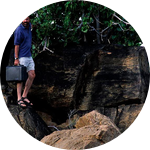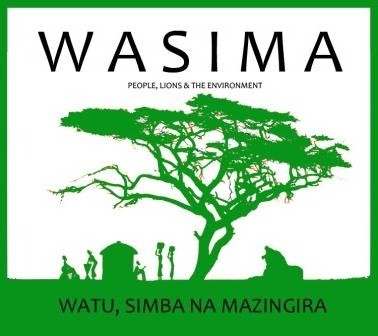About This Project
Tanzania is the primary remaining stronghold of lions, however the numbers are declining precipitously. There are many causes, but lion-killing by locals plays an important part. With Experiment support we ran a campaign to empower local sentiment against illegal lion killing and enhance environmental practices among Sukuma communities on the boundary of Katavi National Park. We now need to test effectiveness of the campaign to determine expansion of our operations.
Ask the Scientists
Join The DiscussionWhat is the context of this research?
In Africa many communities raise livestock next to protected areas where lions roam. Conflicts are rife. Lions catch cattle, and sometimes people. Locals kill lions for protection, or to avenge loss. Lion-killers, after performing their “lion dance”, are richly rewarded with gifts. In 2011 we started the WASIMA (People, Lions & Environment) campaign to halt illegal lion killing in Mpimbwe. WASIMA builds on local sentiment to institute village bylaws that forbid illegal lion hunting and the rewarding of such hunters.
WASIMA has established by-laws in 18 villages in Mpimbwe, and all reports suggest lion killers and lion dancers are rarely observed. To expand this model to new areas where lion killing/ dancing persist, we must document changes in human-lion conflict since 2011.
What is the significance of this project?
Conservation interventions need constant evaluation and monitoring, both to determine whether desired outcomes are attained and to identify potential for redesign and/or scaling up. We now aim to determine the effectiveness of WASIMA across its 18 villages to identify whether and how it can be extended beyond Mpimbwe. Given that the majority of protected areas with lion populations in Tanzania are surrounded by Sukuma or other ethnic groups with lion killing/dancing traditions, this knowledge is key to a successful national lion conservation strategy.
What are the goals of the project?
Using the questionnaire built off that was used in 2010, and using independent researchers, we will revisit a sample of households in Mpimbwe to determine the number of visits from lion dancers in last 5 years, whether dancers were rewarded, attitudes of household members to lion killing/dancing, and their knowledge/views on the WASIMA campaign. We will use comparative methods to determine factors associated with campaign success, comparing villages targeted and not targeted by WASIMA. Our ultimate objective is to assess whether and how our campaign has succeeded such that we can expand the WASIMA model to other areas in Tanzania where lion killing/dancing is still prevalent.
Budget
We ask Experiment backers to cover costs for evaluation of our 5 years Campaign in Mpimbwe. WASIMA has been primarily funded by NGS through BCI grant and backed up by UC Davis and other donors.
We have already a piloted questionnaire for this survey. We will employ and train 2 independent local researcher assistants to identify households for sampling, collect and manage field data. We need funds for stationary costs, and subsistence allowances for food and lodging. The Experiment vehicle will be used for transport, but it needs fuel and maintenance. We will then employ a project member to enter data that will then be analyzed at UC Davis. The full WASIMA team will collaborate on publishing for academic and all stakeholders.
The estimates include: $1000 for employment/training of 2 local research assistants for 1.5 months; $300 for stationary and communications; $600 for food and lodging; $600 for vehicle fuel and upkeep expenses; $300 data entry.
Total $2,800.
Endorsed by
Meet the Team
Affiliates
Affiliates
Team Bio
https://experiment.com/projects/stop-lion-killing-in-tanzania
Jonathan Lucas Kwiyega
https://www.facebook.com/pages...
Overall affiliation: UC Davis and Landscape and Conservation Mentors Organization (Leading and Learning from Locals)
Jonathan Kwiyega is now the LCMO director since 2018 and has led the WASIMA campaign as the Project Manager since April 2015. He holds a Masters degree in Science of Management of Natural Resources and Sustainable Agriculture, Sokoine University of Agriculture (Tanzania) and has broad natural resource management experience. He is a teacher, gifted speaker and author of How to Glow Your Genius and Develop Your Talent. Jonathan is also a National Geographic Explorer.
Tim Caro
Tim Caro is UC Davis Professor of Wildlife Conservation and Fish Biology. He works on predator and antipredator behavior, biodiversity assessments, and conservation, and has a very long research record in Tanzania. He has recently solved the evolutionary enigma of why zebras are black and white.
Monique Borgerhoff Mulder
Monique Borgerhoff Mulder is UC Davis Professor of Anthropology with over 17 years' experience working in Mpimbwe, western Tanzania. She specializes in quantitative demographic and economic analyses, and has edited a book "I've been Gone Far Too Long" on the (typically mis)adventures of doing science in remote places.
Project Backers
- 39Backers
- 126%Funded
- $3,541Total Donations
- $90.79Average Donation




